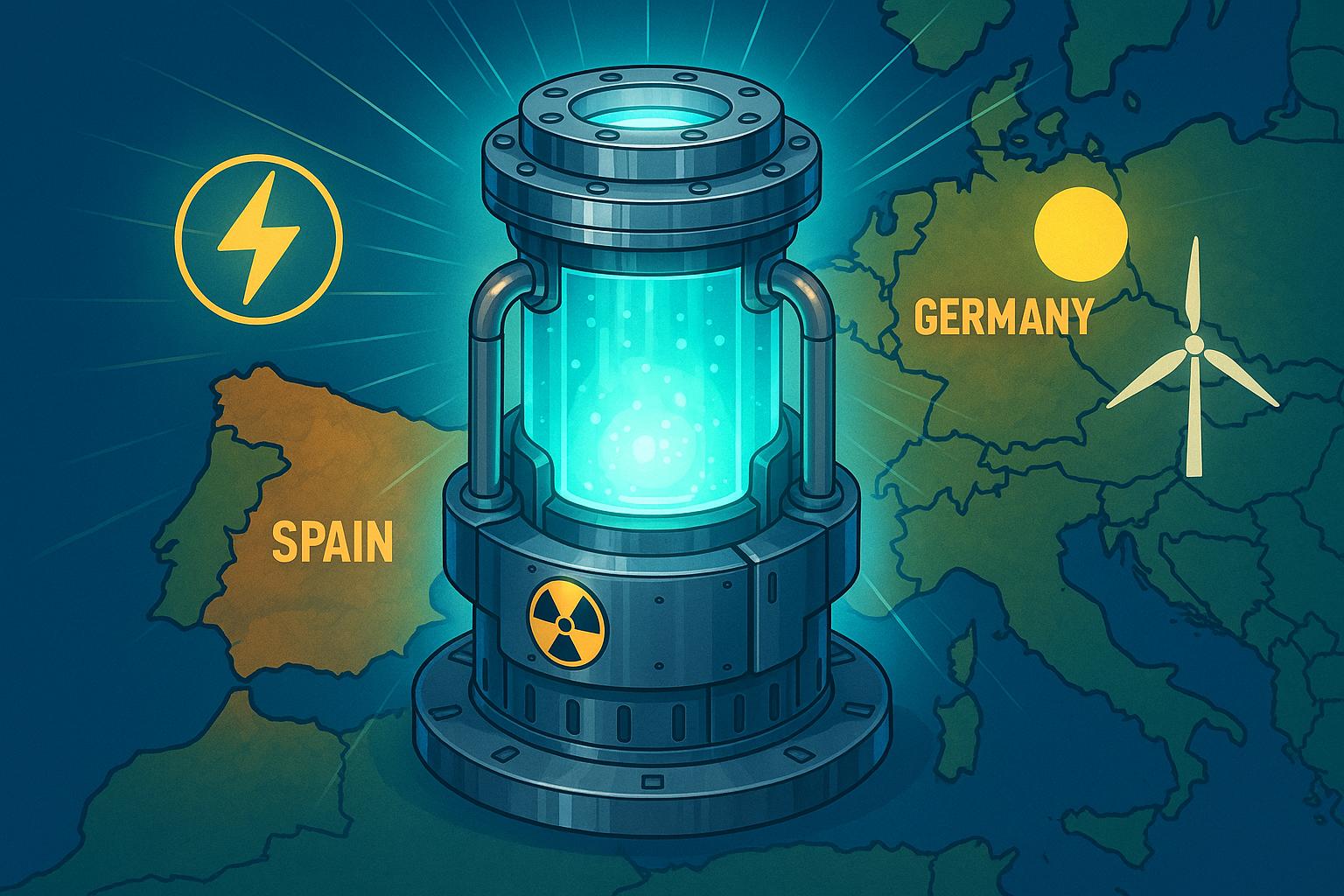When millions across the Iberian Peninsula were plunged into darkness last month, the fallout ignited a renewed debate over Europe’s energy future, with particular focus on renewable energy’s reliability and the role of nuclear power. The blackout, which has been described as the most significant power outage in decades, has left many questioning whether the shift towards renewable energy sources can truly guarantee a stable clean energy supply. This incident has reignited discussions regarding the nuclear power renaissance that many countries are now considering.
Despite longstanding environmental concerns, political leaders globally are increasingly eyeing nuclear energy as a viable path forward. With the urgent demand for low-carbon energy escalating—especially as data centres proliferate—there is a growing consensus that investing in nuclear energy might be essential. In Spain, this discourse has gained urgency due to plans to phase out the nation’s remaining seven nuclear reactors by 2035. Critics argue that such moves could jeopardise energy security and lead to significant increases in electricity prices. Ignacio Galán, chairman of the renewable energy company Iberdrola, warned that following Germany's lead in closing its reactors could push Spain’s electricity prices up by as much as 25%.
In light of the recent blackout, Spain's Prime Minister Pedro Sánchez vehemently dismissed suggestions that the surge in renewable energy usage contributed to the power failure, asserting that allegations linking the incident to a lack of nuclear energy are misguided. Nonetheless, even prior to the blackout, experts and industry leaders were advocating for a reconsideration of Spain’s anti-nuclear stance. Sama Bilbao y León, director-general of the World Nuclear Association, expressed concerns regarding Spain's economic future without nuclear power, emphasising its necessity for providing clean and reliably available energy all year round.
This trend towards nuclear energy is not confined to Spain. In Germany, a similar evolution is occurring under the new conservative Chancellor Friedrich Merz. His government has re-evaluated prior anti-nuclear policies in light of energy crises exacerbated by geopolitical tensions, particularly following Russia’s invasion of Ukraine. Merz has proposed treating nuclear energy equivalently to renewables within EU energy frameworks, aligning with France’s pro-nuclear position. This pivot marks a significant shift for Germany while fostering greater bilateral cooperation within European energy policy.
In Australia, a new coalition government is also opening the door for nuclear energy, lifting a ban on nuclear generators and promising significant financial commitments towards building new facilities expected to be operational by the mid-2030s. Meanwhile, Taiwan faces its own pivotal decision regarding the restart of a nuclear reactor amid rising energy demands from the semiconductor industry and concerns over energy security in the face of potential military threats.
The urgency for reliable power sources is echoed in the United States as well, where the infamous Three Mile Island site prepares to restart operations to furnish energy to tech giants like Microsoft, who are grappling with the escalating energy demands inherent in the AI sector. As major technology firms pursue contracts for new nuclear capacity, investment banks like Goldman Sachs project an increase in such deals as the appetite for reliable, low-carbon energy grows.
Breakthroughs in nuclear technology, particularly with small modular reactors (SMRs), promise a feasible and less risky path to expanding nuclear power. These reactors offer quick and cost-effective construction options, contrasting sharply with the historically burdensome timelines and budgets of traditional nuclear projects. Google has recently sealed agreements to procure energy from SMRs, underscoring the corporate sector's growing belief in this technology.
However, the path to nuclear power’s renaissance is not without its sceptics. Critics argue that SMRs remain unproven in commercial applications and raise concerns about unresolved issues surrounding nuclear waste management. Prominent voices, such as Dr Doug Parr from Greenpeace UK, have called attention to the potential pitfalls, underscoring the substantial financial and logistical challenges that persist in reviving the nuclear sector.
Yet the shifting political landscape is clear. Countries like the UK are advocating for the integration of nuclear energy into their clean energy strategies as they face pressure from energy-intensive industries. Plans for widespread nuclear deployment have been announced, including the possible operational start for smaller reactors as early as 2032. Meanwhile, the European Union has acknowledged nuclear energy’s role as a necessary component in achieving climate goals, amidst ongoing debates regarding safety and waste management.
As the demand for electricity surges worldwide, driven largely by technological advancements and the climate crisis, nuclear energy is being revisited not only as a reliable source but also as a pivotal player in the global transition towards decarbonisation. The coming decade will likely determine whether this renaissance can successfully navigate the challenges it faces, but the renewed political will suggests that the time for nuclear energy may indeed be now.
Reference Map:
- Paragraph 1 – [1], [2]
- Paragraph 2 – [1], [4]
- Paragraph 3 – [3], [5]
- Paragraph 4 – [6], [7]
- Paragraph 5 – [3], [2]
- Paragraph 6 – [1], [4]
- Paragraph 7 – [1], [2]
- Paragraph 8 – [6], [5]
- Paragraph 9 – [5], [3]
Source: Noah Wire Services
